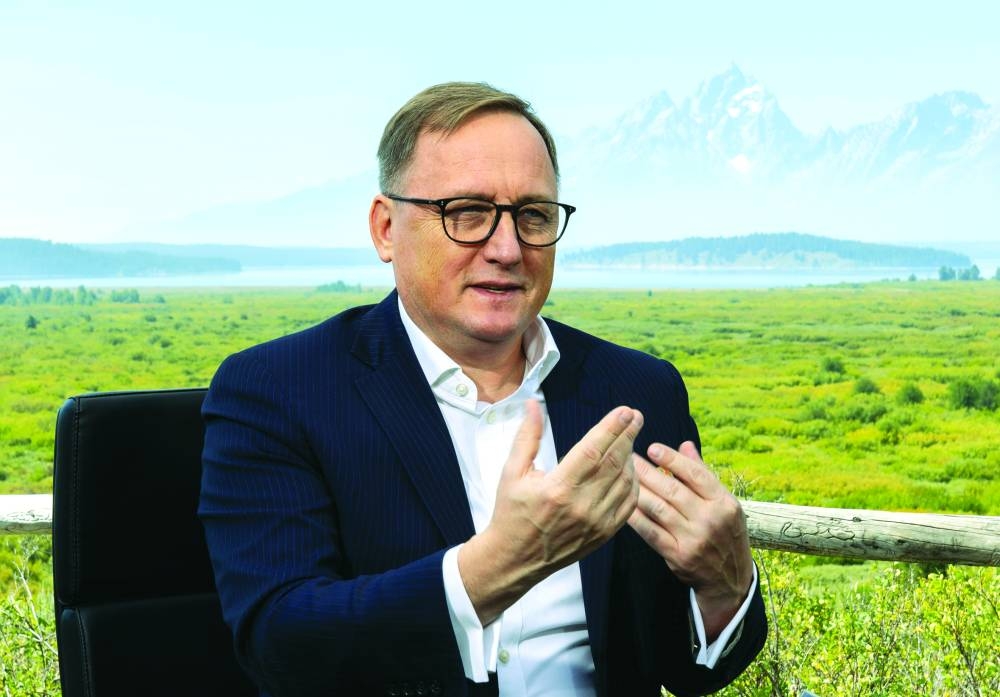The European Central Bank (ECB) is likely to cut interest rates again next week and while policymakers are set to debate a bigger-than-usual move, they should proceed carefully, according to Governing Council member Martins Kazaks.
“We’ll definitely discuss this,” the Latvian official told Delfi TV on Wednesday. “But one thing that you have to keep in mind is that uncertainty is still very high. We are still in a situation where there are still a lot of geopolitical risks. We don’t know how the US will implement tariff increases. We don’t know, therefore we still have to remain cautious.”
While not ruling out a 50 basis-point reduction in the deposit rate on December 12, investors see an 80% chance of another quarter-point move to match the three cuts to date this year.
Most officials are signalling that another step of that size is the likeliest outcome, though Bank of France Governor Francois Villeroy de Galhau said they should keep open minds. JPMorgan Chase & Co last week brought forward its call for a half-point decrease in December — it previously had expected such a move only in January — citing weak economic growth, slowing services inflation and persistent trade uncertainty.
Other policymakers have shied away from demanding an outsized step. Vice President Luis de Guindos highlighted last month that the rate-cutting path is more important than the actual size of any reduction.
Executive Board member Isabel Schnabel said she never rules anything out, but has a “strong preference for a gradual approach.”
Speaking earlier in the day, Kazaks said consumer-price growth that’s nearly in check is the reason the ECB should continue to cut borrowing costs.
“We see that the inflation problem will soon end, and that means that we can lower rates,” he told Latvia’s TV3, while also highlighting threats, including US trade policy.
“Of course uncertainty is very high, of course we don’t know the first steps of Donald Trump when he takes office, tariffs could also slow again Europe’s economy, but altogether the story is that Europe’s economy is going from its lowest point upwards.”
Speaking at a conference in Athens, Greece’s Yannis Stournaras — who’s also flagged the dangers from Trump in the past — agreed with Kazaks that inflation is in retreat and that “in December we will continue to reduce interest rates.”
In a separate interview with the Financial Times, ECB Chief Economist Philip Lane said the impact of potential US trade levies could hit euro-area inflation in “both directions.”
“It’d be very important, I think, not to say that there’s necessarily a net bias in either direction,” he said on an FT podcast aired Wednesday. “I can list out disinflationary forces, I can list out some inflationary forces. And then, when you put all of that together, what exactly happens will very much depend on the exact sequence of events.”

Martins Kazaks, Governing Council member of the European Central Bank.
